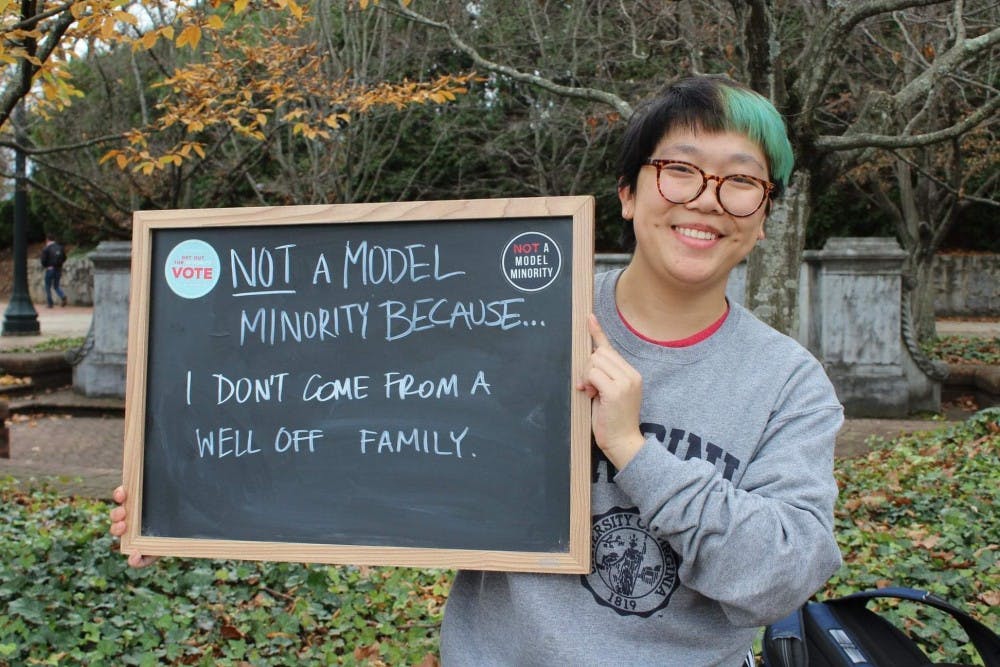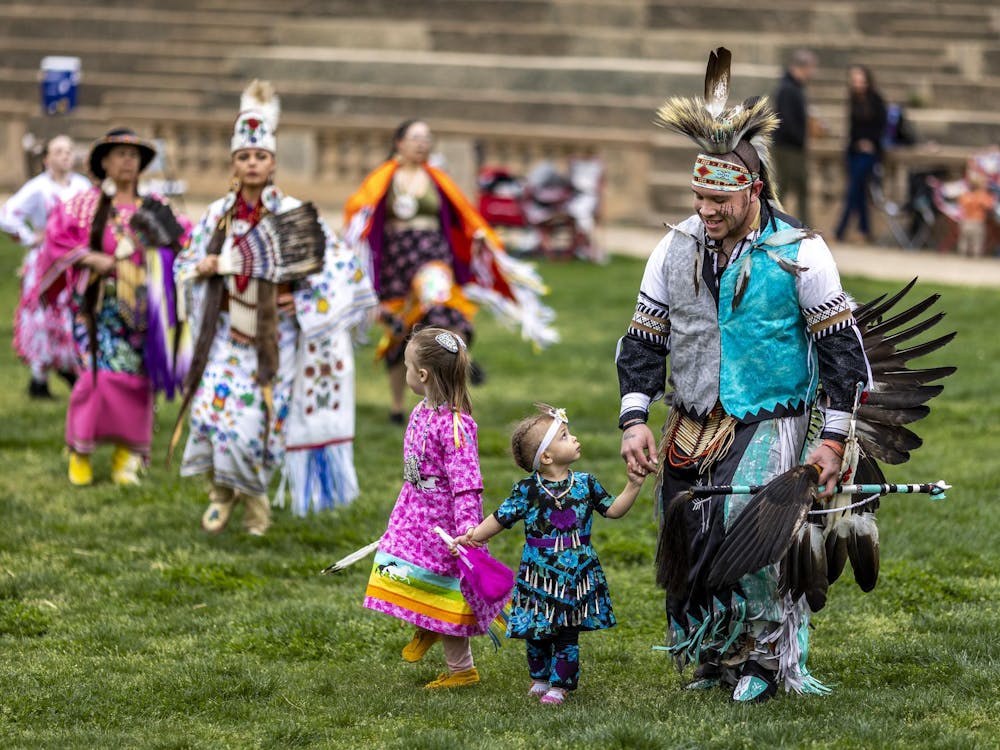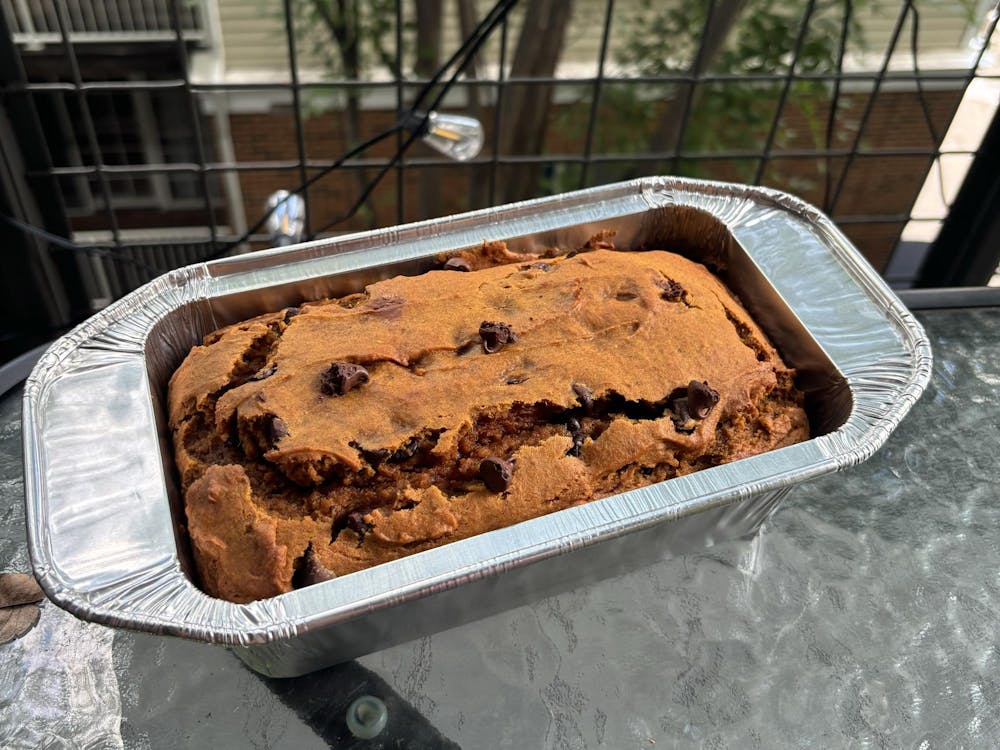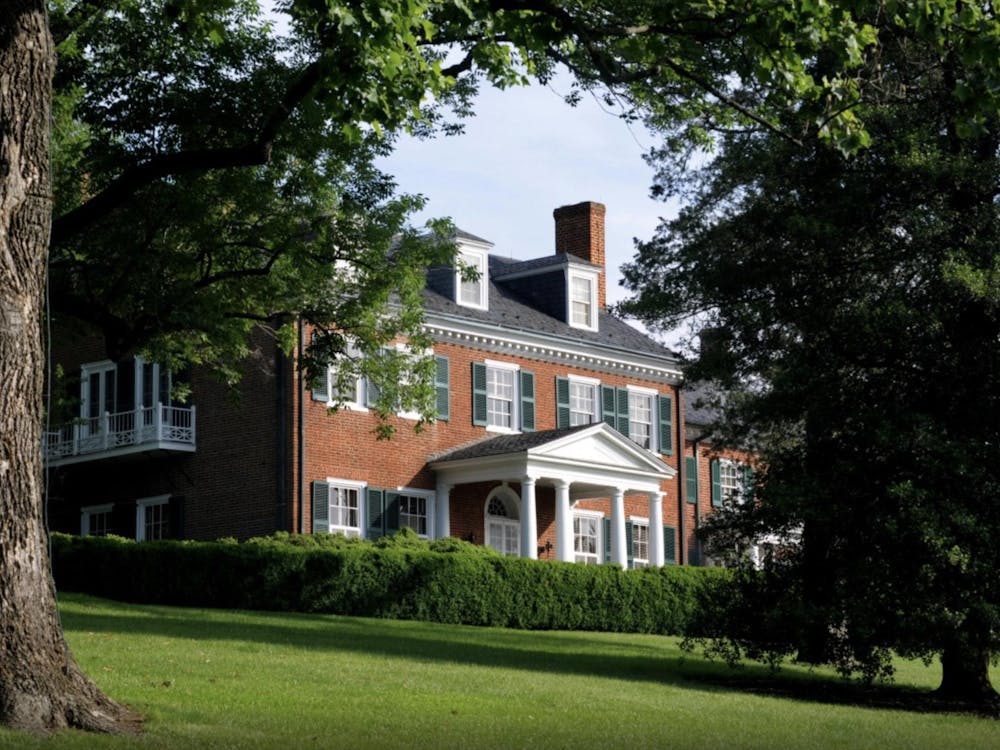Fourth-year McIntire student Jannette Nguyen grew up and attended school in a predominantly Caucasian area. As one of the few minority students at her school, she recalled frustration at being targeted as part of the very common “model minority” stereotype. This myth perpetuates the stereotype that Asian Americans are all smart, successful and superior to other minority groups.
“If we did well on a test or something, people would just say, ‘Oh, it’s because you're Asian. Of course you’re smart,’” Nguyen said.
Nguyen shared this story with the group gathered in Ern Commons Sunday night at a kickoff event for Asian Student Union’s annual Not A Model Minority Campaign campaign. NMMC will be in effect Sept. 30 through Oct. 4, and the goal of the campaign is to demonstrate why and how this seemingly positive stereotype is destructive.
Sunday night’s “Kickoff Discussion” included a panel of fourth-year College students Eileen Ying and Vilas Annavarapu, second-year College students Katie Zhang and Ankit Agrawal, as well as Nguyen. The panel answered questions about their own experiences with the myth and some suggestions as to how to combat it. Roughly 20 students came to the panel.
“I felt that [growing up with the myth] was really demeaning because I worked so hard for what I did [in school], and it was frustrating to hear ... ‘Oh, you could have gotten it anyway because you're Asian — you're just naturally smart,’” Nguyen said.
“I think [the myth] can be viewed as minority groups being used as a tool against other minority groups,” Annavarapu said. “I would say it tells a very incomplete story about Asian-American experiences in the United States. There are plenty of people who aren't privileged in the way the Asian-American stereotype is presented. It erases a lot of history, a lot of oppression and a lot of pain.”
After the panel, attendees and panelists were encouraged to stay and engage in small group discussions.
“Great discussions were raised after the panel about the intersectionality of [Asian-American] issues, personal experiences encountering and defying the model minority myth and connections made between students,” said Zoe Pham, second-year College student and co-chair of the ASU advocacy committee.
The Not A Model Minority Campaign was first introduced to the University in 2000. The goal of the campaign is to promote discussion and bring visibility to Grounds surrounding the issue of “model” stereotypes against the APIDA community. APIDA is a term used by ASU to embody those who identify as Asian, Pacific Islander and Desi-American.
While commonly perceived as a positive stereotype, it is ASU’s mission to educate students on Grounds that this concept is actually destructive. According to Valerie Young, third-year College student and president of ASU, the stereotype erases individuality while generalizing all Asian-Americans as disciplined and quiet, for example. The stereotype creates an indirect hierarchy among minorities as well.
“It makes other minorities think of us as the better minority,” Young said. “It puts minorities against each other when we should all be working together to achieve the same goal of equality,” Young said.
In bringing the NMMC to Grounds, the ASU strives to educate the greater University community as to the problematic nature of the myth and to redefine the stereotype as harmful rather than positive.
“While [the stereotype] may be representative of some good qualities relevant to the APIDA culture, it definitely hides a lot of the socioeconomic and cultural diversity within the APIDA community,” Pham said.
Moreover, the ASU aims to ignite a realization among University students — both APIDA and non-APIDA — as to the reality of the issue. Though the stereotypes are often sensed starting at a young age, both Young and Pham recall realizing the weight of the model minority myth once they got to college.
“I know that in high school I wasn't really exposed to social issues at all, but I was exposed to the idea that all Asian Americans are expected to be really disciplined and all be the same,” Young said. “I started tabling for the campaign when I was a first-year and didn't really know what the issue was. I remember realizing the myth as I was talking to people and as they were asking me questions.”
Pham also detailed their experience participating in her first NMMC week after joining ASU as a first-year.
“I had never actually heard the term model minority until I came to U.Va. … I understood what the myth meant, but I didn't really have a term to call it or have the vocabulary to explain why these seemingly positive things were actually bad, ” Pham said. “I was pretty happy to find something to call this thing that I've experienced my whole life and just to be able to talk about why this is harmful.”
Though debunking the myth is a yearlong commitment for the ASU, the group works to advocate for one week every year. The week will consist of daily tabling and promotional flyers. ASU will hold chalking opportunities through Oct. 3 from 11 a.m. to 2 p.m. at the Whispering Wall, during which anyone can chalk a message of support and solidarity. Chalking will be held at Newcomb Dining Hall Oct. 4 from 11 a.m. to 2 p.m. ASU encourages anyone to participate in the campaign by stopping by and will hand out stickers as well.
Correction: This article previously attributed she/her pronouns to second-year College student Zoe Pham, who uses they/them pronouns. It has been updated to reflect their correct pronouns.





